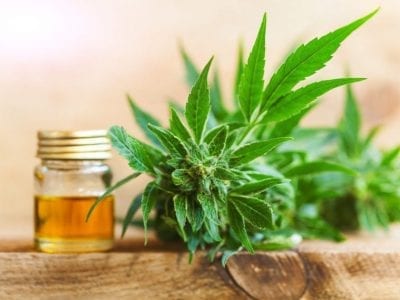In the last decade, the notion of CBD as a skin savior exploded. The claims are out there noting CBD benefits on the skin as anti-aging, inflammation, acne scarring, collagen boosting, and moisturizing.
However, have any of the benefits been supported by science?
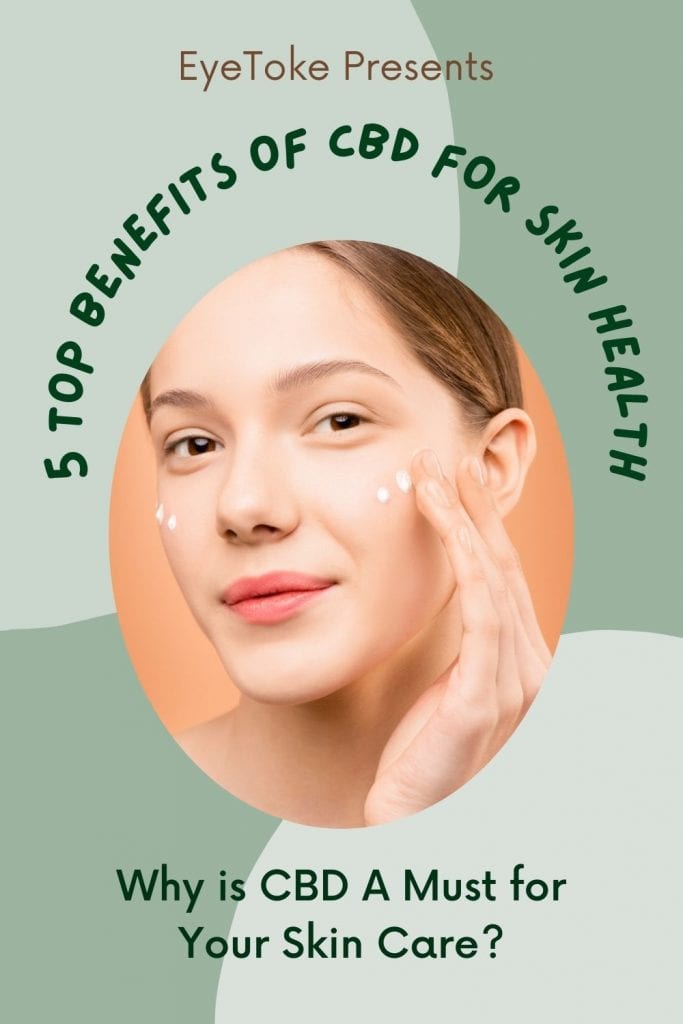
To understand the effects of CBD oil on Skin. We need to first understand the makeup of CBD oil.
What is CBD Oil made of?
CBD is a cannabinoid which comes from hemp plants and it is the component of hemp that does not have mind altering effects (that part is tetrahydrocannobinol-THC, and it is not present in skincare products). Hence, you will not be getting high putting on your CBD based skin product. Usually, CBD is delivered as an oil, but extracted as a powder. CBD powder is often mixed with other oils (hemp, olive, coconut) t help with its absorption and application. Which is why, it is important to investigate what oil is mixed in your CBD product. For example, coconut oil is comedogenic and will plug your pores whereas olive oil will not. You might then mistakenly blame your breakout on the CBD when your skin reaction might be caused by the oil it was mixed in.
Note: CBD oil is not the same as hemp seed oil. Although hemp seed oil is beneficial, it contains only trace amounts of cannabidiol whereas CBD oil has a high concentration of cannabidiol.
5 Evidence-Based, Proven, Benefits of CBD for Skin
There are some evidences on CBD and it’s skin benefits. However, skin research on CBD is so far limited to lab and animal studies.
1. CBD Oil for Wrinkles & Anti-aging Properties
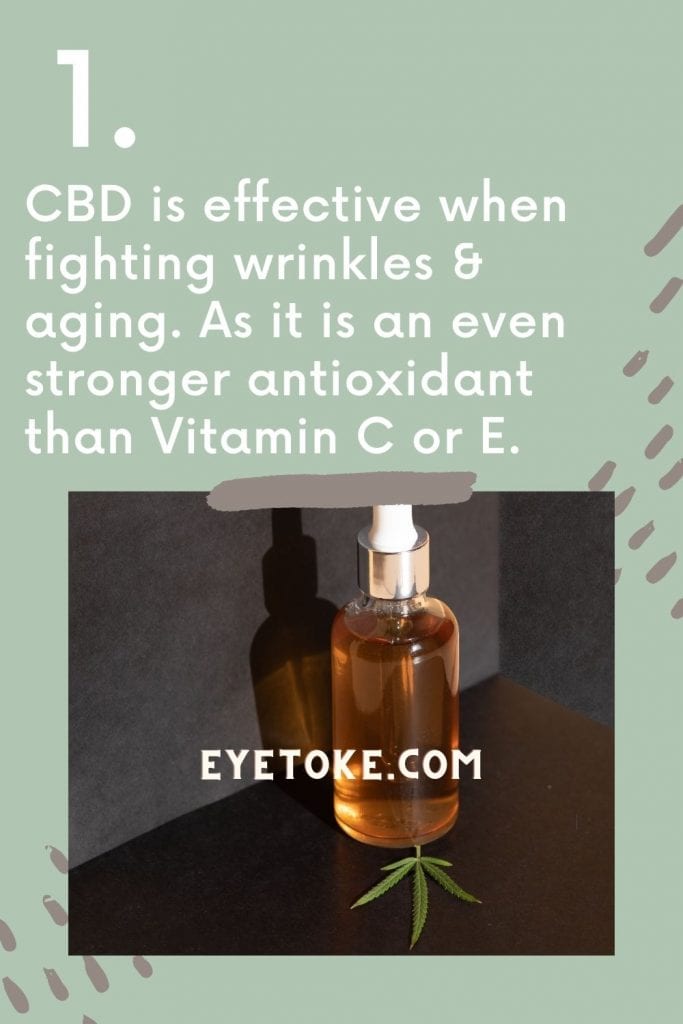
CBD is found to slow the skin aging timeline when used topically. CBD oil is rich in antioxidant properties which helps lessen the aging process by preventing cascade reactions that cause reactive oxidative species (ROS) or free radical damage. Reducing ROS reactions, reduce the visible and observable signs of aging. In addition, antioxidants reduce inflammation. Combination of CBD’s anti-inflammatory properties with prevention of free radical damage leads to less wrinkles, redness, and skin dullness.
Keep in mind that there are plenty of antioxidants out there. CBD is one of the many antioxidants that help with the anti-aging effects on the skin. However, CBD was found to be a more potent antioxidant than Vitamin C or E, making it a more effective treatment for wrinkles, facial drooping, or sagging than other available antioxidants. Moreover, CBD has the ability to decrease free radicals reduces the aging damage on skin collagen and elastin which keeps the skin tight, healthy and young.
2. CBD oil Reduces Redness or Sensitive Skin Reactions
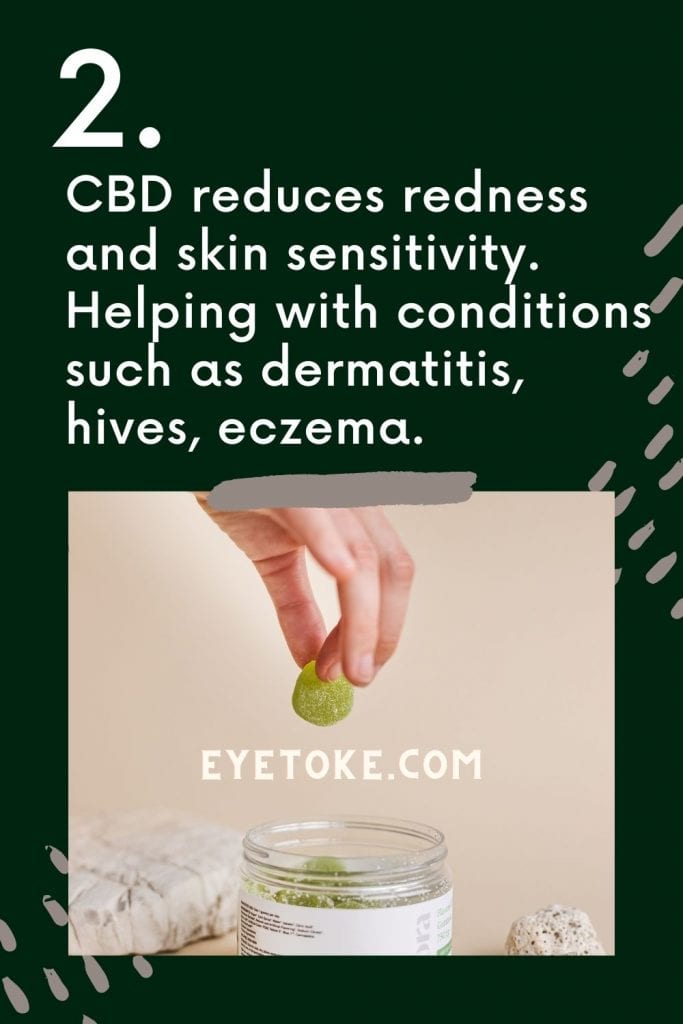
As mentioned, previously CBD oil is anti-inflammatory, and it has soothing properties when applied to the skin. This property can help with calming the skin for people with sensitive skin, rashes, redness, atopic dermatitis/eczema, itchiness, or general reactivity. In addition, all of our skin is daily enduring a fight with environmental stressors or irritants in air, we can all use CBD oil to normalize our skin inflammation levels.
Eczema and Cannabinoids: In addition to antioxidant effect, the high concentrations of polyunsaturated fatty acids in cannabis help reduce itching and inflammation which is commonly seen in eczema/atopic dermatitis. These findings are supported by research done by National Eczema Association (NEA).
3.CBD oil reduces symptoms of Psoriasis:
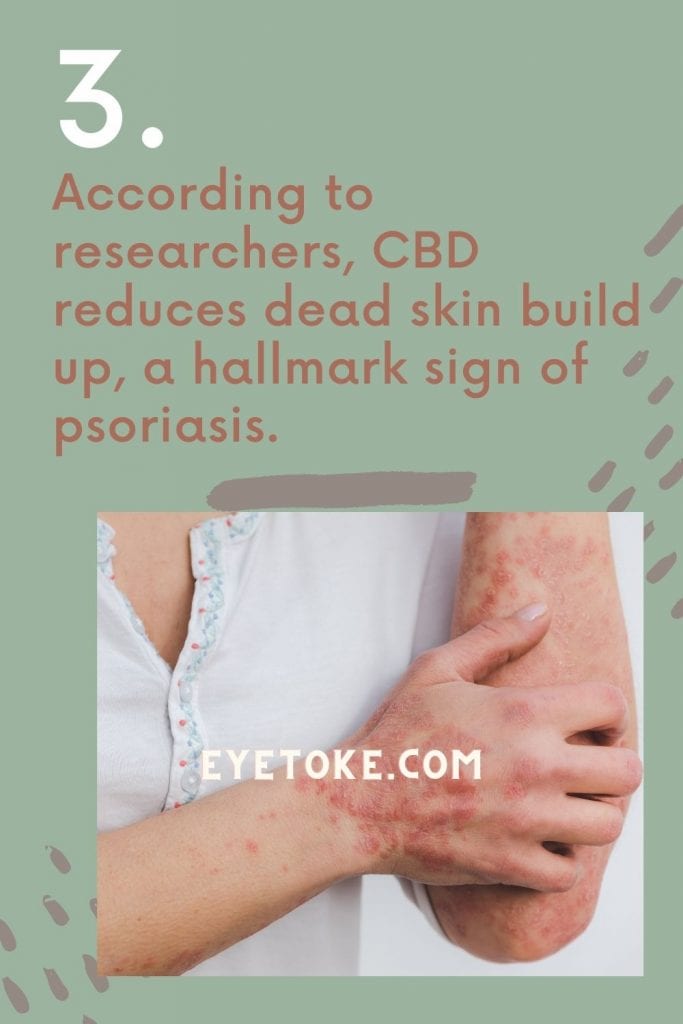
To understand the potential for CBD as a form of treatment with psoriasis is of highly importance as currently there is no known cure for psoriasis. Psoriasis is a skin condition that causes itchy, painful red skin patches due to dead skin build up. CBD appears to be a good potential treatment for psoriasis. A study published in the Journal of Dermatological Science in 2007, showed great potential for CBD in the treatment of psoriasis when tested on the human skin. According to this study THC, CBD and other cannabinoids inhibited overproduction of keratinocytes on human skin, reducing the dead skin build up that causes the psoriatic symptoms. Large number of keratinocytes are visible in psoriatic patients. Although one study is not enough to draw conclusions, this was a high-level study tested on human skin and showed great potential for CBD in the treatment of psoriasis.
4. CBD oil Fights Acne
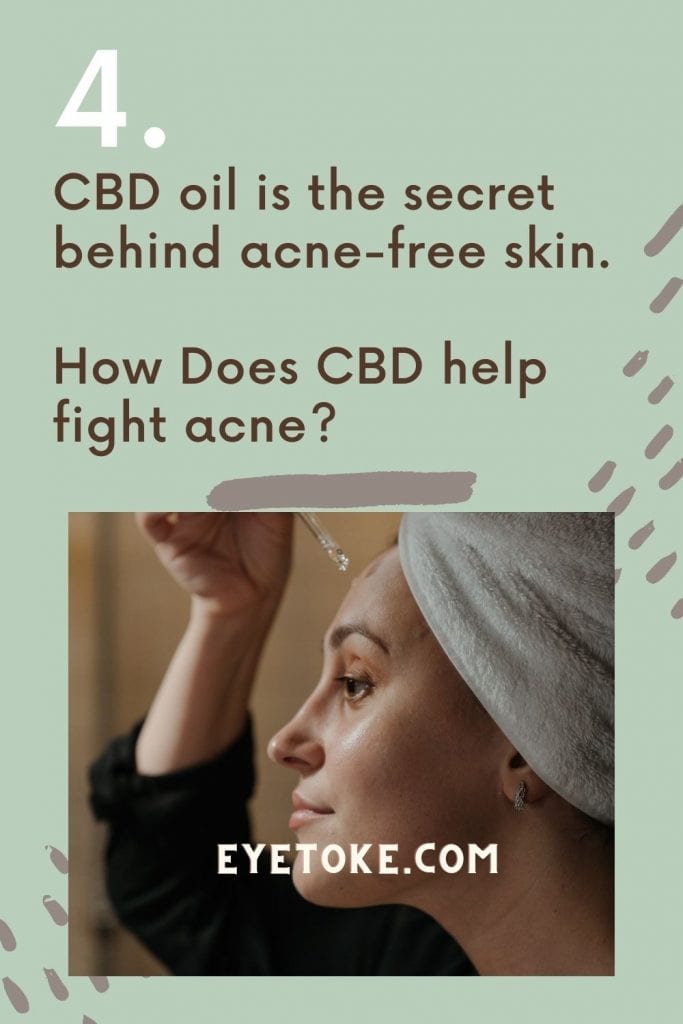
- As we mentioned earlier, CBD has a high concentration of essential fatty acids that hydrate the skin. Low levels of essential fatty acids are associated with acne formation. Moreover, the anti-bacterial properties of CBD can help with fighting acne once it appears. Most CBD products are non-comedogenic (research the oil base if the skin product is a CBD oil), anti-inflammatory, and rich in antioxidants. Moreover, research shows that CBD can help those with oily skin as cannabidiol inhibits and regulates lipid production. Remember that excess oil production leads to acne and by regulating the lipid profile on the skin, CBD helps prevent acne. However, if acne appears it also helps fight the acne with its anti-inflammatory and anti-bacterial properties. The anti-bacterial property of CBD helps fight skin infectious diseases such as boils, cellulitis, impetigo, and folliculitis. According to a study, CBD fights difficult-to-fight bacteria like MRSA when antibiotics are not responsive.
5. CBD oil Strengthens Skin Protective Barrier
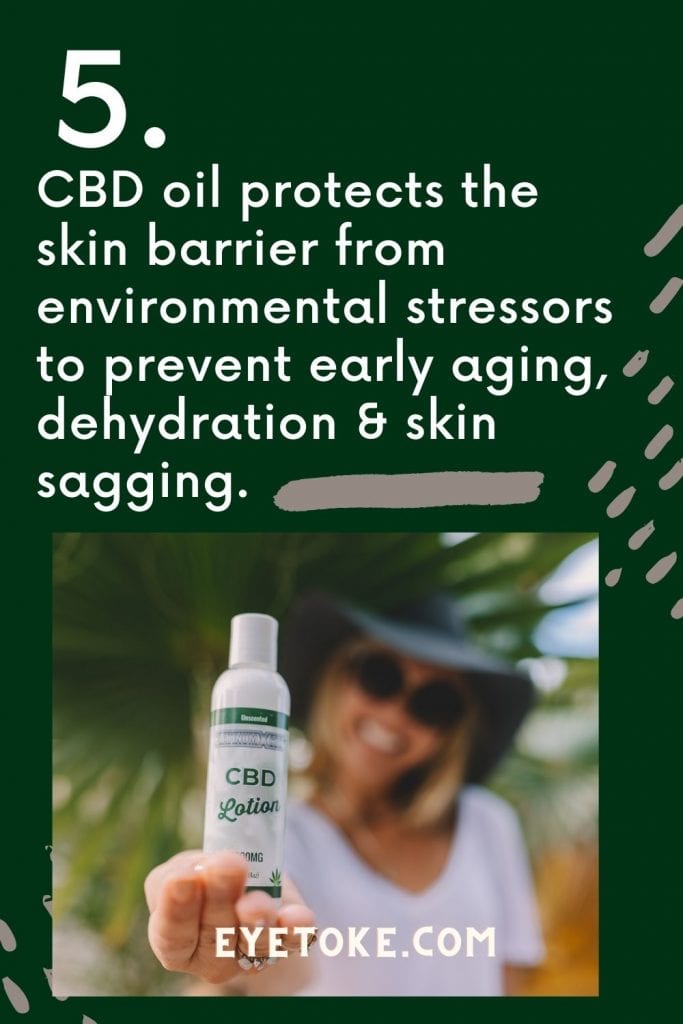
CBD oil helps your skin to form a strong natural barrier as it is high in vitamin A and D. These ingredients help the skin with cell regenerations for recovering skin. The antioxidants and vitamins in CBD can help with skin’s fight with environmental stressors like, sun or smoke. In addition, the fatty acid component of CBD helps the skin to protect and strengthen the skin’s outer layer which leads to a healthy, youthful, and radiant skin.
If you have read this article and done plenty of outside research and have decided to go ahead and include CBD oil in your daily routine, how do you decide on which product to buy?
If you are at this stage, here are some tips for the best CBD product for your Skin Care Routine
How Do You Identify the Best CBD Product for your Skin Care Routine?
- The ingredient list contains “Cannabidiol” as the top 3 ingredients. The CBD is cannabidiol and FDA-approved INCI-compliant products will list Cannabidiol as an ingredient on their ingredient list.
- Make sure the cannabidiol content is listed in milligrams. Legitimate CBD products quantify the CBD content. Currently, there is no consensus on the quantity of CBD needed per application, but we do know that CBD is the active ingredient that binds to receptor sites on the skin to produce the desired skin effects.
- Packaging is important. Exposure to light or air reduces the efficacy of CBD. Therefore, look for appropriate packaging that is not jars or clear bottles.
- There are some none regulated terms that can be helpful in identifying the type of CBD in the product:
CBD isolate is the pure form of CBD with cannabinoids only and it hasn’t tampered with other flavonoids or terpenes.
Full-spectrum CBD is the combination of hemp and CBD with the possible inclusion of THC (<0.3%) and other cannabinoids.
Broad-spectrum CBD has no detectable THC.
Although CBD as a skin product is new and research is preliminary at best, it is a promising ingredient. I highly recommended including a CBD-based oil product even with the lack of enough anecdotal and research evidence. My reasoning is that CBD is one of the only natural and non-irritating ingredients for many skin conditions. It is one of the only stand-alone ingredients. I feel we are only scratching the surface when it comes to the skin benefits of CBD and as research evolves more benefits will come to light.
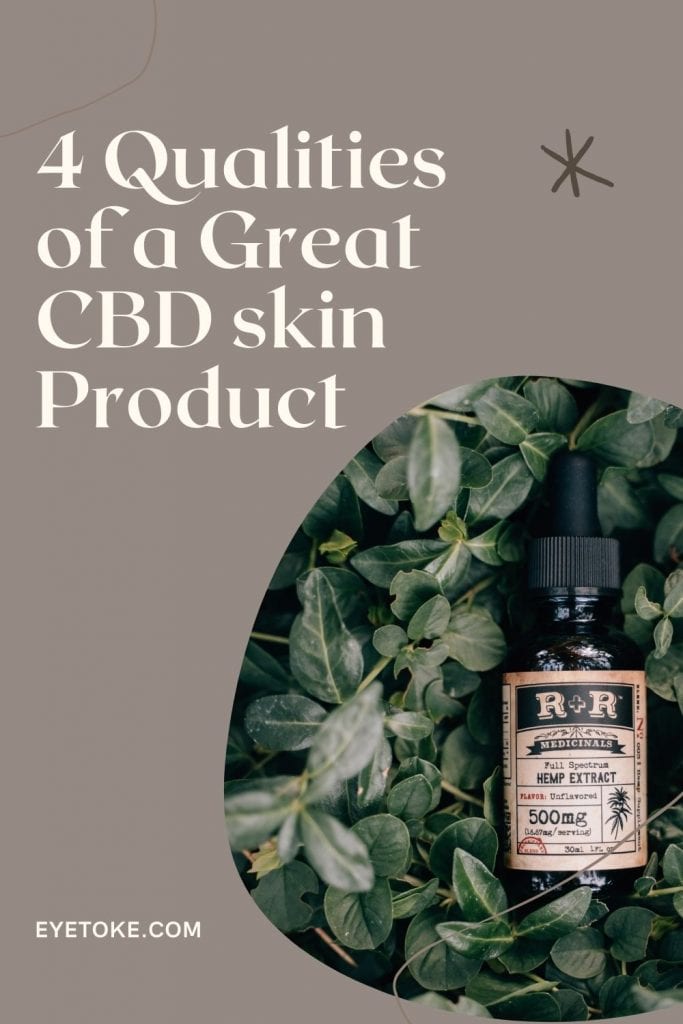
References:
Redox Biology, January 2020, ePublication
Molecules, March 2019, ePublication
Journal of Pharmacology and Experimental Therapies, June 2018
Journal of the Americal Academy of Dermatology, July 2017
Cannabis and Cannabinoid Research, June 2017
Free Radical Biology and Medicine, September 2011
U.S. Department of Justice, Drug Enforcement Administration, e-publication



